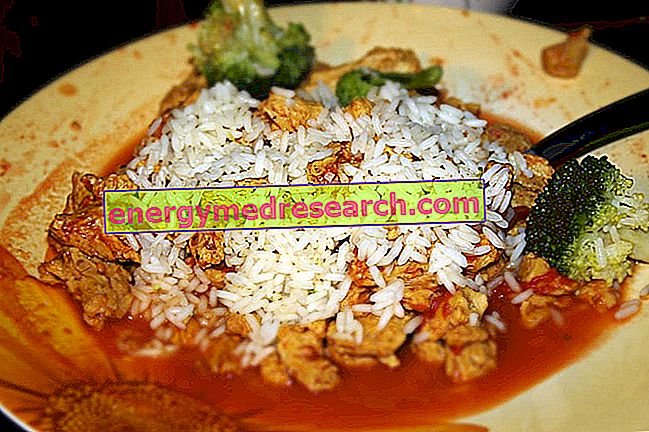Watch the video
X Watch the video on youtubeWhat is lecithin and how it is obtained
Lecithin supplements are made up of a mixture of various substances, obtained mainly from soy beans and intended for individuals suffering from lipid metabolism disorders (high cholesterol).

Lecithin and cholesterol (biochemical analysis)
In our organism, lecithin is part of the structure of cellular membranes, of which it is the main constituent. It is also used in the liver for the synthesis of an enzyme called Lecithin Cholesterol Acyl Transferase ( LCAT ), capable, as the name implies, of esterifying cholesterol according to the following reaction:

The LCAT extracts the polyunsaturated fatty acid present in position 2 of the lecithin and transfers it to the cholesterol, esterifying it. This reaction is very important because it promotes the distribution of cholesterol to various tissues.
Lecithin Cholesterol Acyl Transferase facilitates the incorporation of excess cholesterol into peripheral tissues in HDL. In turn, HDL can exchange their lipid load with other lipoproteins or directly transmit cholesterol to the liver. This last function, also known as "reverse cholesterol transport", is particularly important because only in the liver the excess cholesterol can be removed from the body through the bile which, poured back into the intestine, is partly reabsorbed and partly eliminated with faeces.
The action of lecithin is therefore kindly comparable to a broom, able to cleanse the vessels from the fat that is deposited there and to play, in this way, an important preventive role against atherosclerosis.
Lecithin is also part of the composition of bile itself and, together with bile salts, helps to solubilize cholesterol, preventing it from precipitating in the form of microcrystals; therefore it has a preventive action on the formation of gall bladder stones.
Health effects and properties of lecithin
Thanks to its biochemical peculiarities, lecithin is an excellent regulator of blood cholesterol. For this reason it is among the most commonly prescribed dietary supplements when dietary and behavioral measures (increase in physical activity) are not sufficient. Its cholesterol-lowering efficacy appears to be even superior to linoleic acid (omega 6) supplements, unlike which it lowers total cholesterol while maintaining the levels of good cholesterol unaltered.
Lecithin is obtained mainly from legumes, such as soya, or from egg yolk.
| Lecithin content of different foods (mg / 100g) | ||
| Soy | 1500 | |
| Whole grains | 600-800 | |
| Meat | 500-800 | |
| eggs | 350 | |
It must be said, however, that the dietary intake of lecithin has been significantly reduced in recent years, in the face of an increasingly poor diet of vegetables and whole foods.
Soy lecithin is also rich in tocopherol (vit. E) and is therefore endowed with antioxidant properties, particularly useful in the health (anti-aging and anticancer) and industrial fields (increases the preservation of lipid-rich products).
Lecithin is often associated with vitamins (E, B6) and minerals (selenium) to increase its therapeutic and restorative properties. For the doses of intake, as there is a certain variability between the various products, it is good to rely on the advice given on the label. It is generally recommended to take two or three teaspoons (10 grams) of lecithin a day, in pure form or added to various foods (yogurt, milk and cooked soups).
The use of lecithin is also recommended in case of mental fatigue, since, being a choline donor (an essential substance for nerve function) improves intellectual efficiency and mnemonic abilities.



